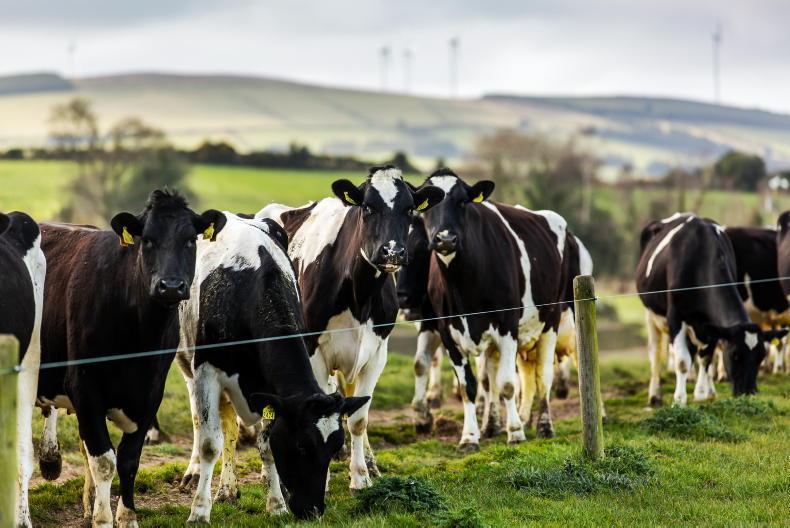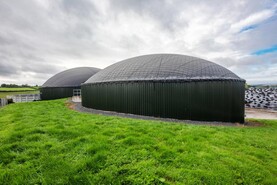Ireland will not maintain its derogation facility in the current format if recent water quality trends are not addressed and shown to have been addressed by an improvement in water quality data, according to the Department of Housing.
To protect Irish water quality, there needs to be broad acceptance of, and adherence to, good agricultural practice requirements, said the Department of Housing’s principal adviser for water David Flynn.
Flynn was speaking to the Oireachtas Agriculture Committee during a debate on Ireland’s Nitrates Derogation. His contribution followed that of the Irish Creamery Milk Suppliers Association (ICMSA) where it told TDs and senators that nitrates reductions are being used to enable agriculture to reach its climate targets.
Cut in derogation limits
Ireland’s current nitrates derogation, which will continue until 31 December 2025, comes with conditions, including that the ‘interim review’ must include a water quality assessment comparing 2021 and 2022 data. This interim review is to be conducted in June 2023, explained Flynn.
If this assessment shows that Ireland has eutrophic water bodies, risks of eutrophic water bodies, water bodies with increasing trends or water bodies which exceed an average of 50 mg NO3/l over 3 years then farms in the catchment areas feeding into these monitoring points will face a cut in derogation limits from 250kg N/ha to 220kg N/ha, the Department of Housing official warned.
Eutrophication is the process by which an entire body of water, or parts of it, becomes progressively enriched with minerals and nutrients, particularly nitrogen and phosphorus.
“This excess of nitrogen and phosphorus compounds accelerates the growth of algae, causing an undesirable change in the natural ecology and lowering oxygen levels in waterways. This reduces biodiversity as fewer species can tolerate this change. Algal blooms impact on wildlife, drinking water and swimming areas,” Flynn said.
‘Common interest’
When asked about the alignment of the Department of Housing and Department of Agriculture when it comes to improving water quality, David Flynn said: “There is a very close working relationship between us and our colleagues in agriculture.
“We work very closely, particularly on nitrates, and also on the CAP strategic plan, the water framework directive and a whole load of these issues. There is certainly common interest on all of those matters.”
Read more
Nitrates being used to secure climate change reductions – ICMSA
Ireland will not maintain its derogation facility in the current format if recent water quality trends are not addressed and shown to have been addressed by an improvement in water quality data, according to the Department of Housing.
To protect Irish water quality, there needs to be broad acceptance of, and adherence to, good agricultural practice requirements, said the Department of Housing’s principal adviser for water David Flynn.
Flynn was speaking to the Oireachtas Agriculture Committee during a debate on Ireland’s Nitrates Derogation. His contribution followed that of the Irish Creamery Milk Suppliers Association (ICMSA) where it told TDs and senators that nitrates reductions are being used to enable agriculture to reach its climate targets.
Cut in derogation limits
Ireland’s current nitrates derogation, which will continue until 31 December 2025, comes with conditions, including that the ‘interim review’ must include a water quality assessment comparing 2021 and 2022 data. This interim review is to be conducted in June 2023, explained Flynn.
If this assessment shows that Ireland has eutrophic water bodies, risks of eutrophic water bodies, water bodies with increasing trends or water bodies which exceed an average of 50 mg NO3/l over 3 years then farms in the catchment areas feeding into these monitoring points will face a cut in derogation limits from 250kg N/ha to 220kg N/ha, the Department of Housing official warned.
Eutrophication is the process by which an entire body of water, or parts of it, becomes progressively enriched with minerals and nutrients, particularly nitrogen and phosphorus.
“This excess of nitrogen and phosphorus compounds accelerates the growth of algae, causing an undesirable change in the natural ecology and lowering oxygen levels in waterways. This reduces biodiversity as fewer species can tolerate this change. Algal blooms impact on wildlife, drinking water and swimming areas,” Flynn said.
‘Common interest’
When asked about the alignment of the Department of Housing and Department of Agriculture when it comes to improving water quality, David Flynn said: “There is a very close working relationship between us and our colleagues in agriculture.
“We work very closely, particularly on nitrates, and also on the CAP strategic plan, the water framework directive and a whole load of these issues. There is certainly common interest on all of those matters.”
Read more
Nitrates being used to secure climate change reductions – ICMSA






 This is a subscriber-only article
This is a subscriber-only article











SHARING OPTIONS: